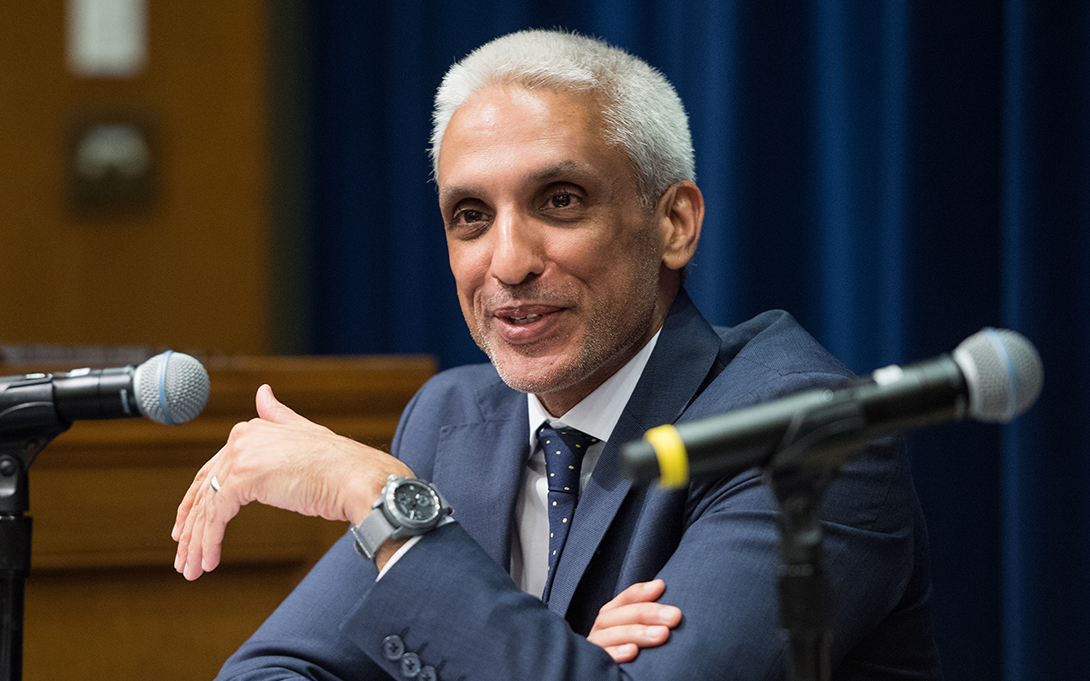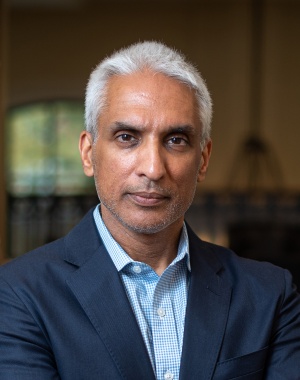
The National Counterintelligence and Security Center highlights an array of threats to Americans that could come from cyberattacks by U.S. adversaries, including Russia, China and Iran. According to the government's experts, these countries and other non-state actors are already attempting to influence the upcoming elections.
Against that backdrop, Ford School students will join peers from the College of Engineering and other STEM disciplines from LSA this fall in a Cybersecurity for Future Leaders course. Co-taught by Javed Ali, Towsley Policymaker in Residence at the Ford School, and Dr. Carl Landwehr, visiting professor in Electrical and Computer Engineering, the class will be a “complete hybrid”, according to Ali. The blended approach of the course will look at the technical aspects of cybersecurity as well as the policy options and actions that can be taken to mitigate the challenge.
“There is no single academic focus, or cohort of students, and you have two professors with different backgrounds, teaching from different places. That’s what makes this so interesting,” says Ali.
When the course was first offered in fall of 2019, it was the first to marry the cybersecurity policy and its technology. This year, election security will be one of the course’s six focus areas.
“My national security module will cover the voting enterprise in general in the United States and its key components, how foreign adversaries like Russia have attempted to influence elections over the past decade, in the U.S. and elsewhere, and what the 2020 elections could entail given current warnings from the intelligence community,” Ali says, noting that it will be taught in the weeks just preceding the November elections.
“This course is for ambitious students, who, when they get to positions of leadership, will be able to ask the right questions and make well-informed decisions on matters of cybersecurity and privacy,” says Landwehr.
Students will be participating in technical and policy analysis, and will be a part of simulations of cyberattacks at either a corporation or in a national security environment.
The other topics covered will be surveillance and data privacy, systems security (like the electrical grid or eventual autonomous vehicle networks), cyber warfare and cyber operations, artificial intelligence (making sense of all the data we can collect), and finally a look at how the issues will develop over the next 3-5 years.
“I think cybersecurity should be a foundational topic for all policy and engineering students. It touches everything we do,” says Ali.
Ali will be moderating a Policy Talk @ the Ford School, Cybersecurity: Threats, policy, and responses, Wednesday, September 30, from 4 to 5 PM ET, which will include panelists Paul Abbate, associate deputy director of the FBI, and Teresa Carlson, vice president of Amazon Web Services Worldwide Public Sector. The event is part of the Science, Technology and Public Policy series and is co-sponsored by the department of Computer Science and Engineering. The event is free and open to the public. Register here for a reminder.
